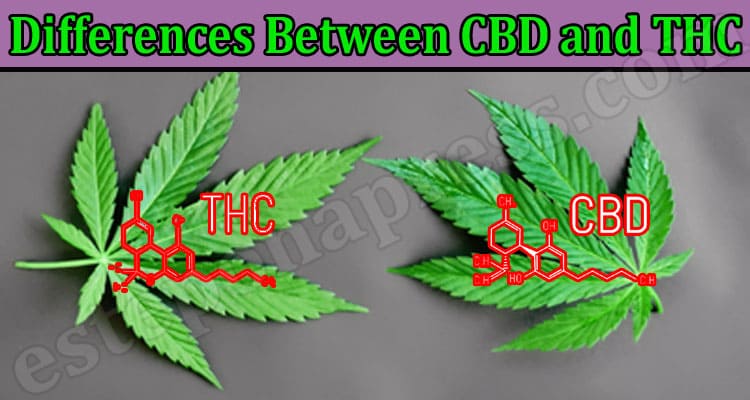We hope your expectation for information about the Differences Between CBD and THC is fulfilled, compiled in the article.
Cannabidiol (CBD) and delta-9-tetrahydrocannabinol (THC) are not novel compounds; scientists initially extracted them from cannabis plants in the early 1940s. However, as scientists investigate the two plant substances and learn more about their properties and medical benefits, our understanding of them is continually growing. In recent years, improved information about the cannabis plant and its two significant ingredients has increased its appeal and brought it into the mainstream. Get a grip on it for more details and understand the Differences Between CBD and THC.
What are CBD and THC?
The chemical component cannabidiol is the second most common in cannabis. CBD has recently gained popularity as a natural treatment for various ailments. Hemp or marijuana can be used to make it. CBD derived from hemp still contains minimal levels of THC. However, CBD derived from marijuana may have more.
THC, or tetrahydrocannabinol, is the psychoactive component of cannabis. THC triggers the brain’s reward system by activating the brain’s chemical dopamine release, according to the National Institute on Drug Abuse (NIDA). 1 THC produces feelings of euphoria by causing a higher-than-normal release of dopamine. THC is commonly ingested through marijuana smoking, although it can also be obtained in pills, sweets, and oils.
Differences Between CBD and THC
- Psychoactive components
CBD and THC have different psychotropic effects despite their comparable chemical makeup. CBD has a psychoactive effect, but not the same way as THC does. It does not create the same high as THC. CBD has been demonstrated to aid in treating anxiety, depression and seizures.
THC binds to the brain’s cannabinoid 1 (CB1) receptors. It gives you a high or a feeling of euphoria. CBD binds to CB1 receptors very weakly, if at all. CBD requires THC to attach to the CB1 receptor, which can help minimise some of THC’s undesirable psychotropic effects like euphoria and sedation. This is a crucial point that brings out the Differences Between CBD and THC.
- Legality
Cannabis-related legislation in the United States is constantly changing. CBD is still classified as a Schedule I substance under federal law. Although hemp has been removed from the Controlled Substances Act, CBD is still classified as a Schedule I substance by the Drug Enforcement Administration (DEA) and the Food and Drug Administration (FDA).
However, 33 states and the District of Columbia have passed cannabis-related legislation, making medical cannabis with high THC levels lawful. A licenced physician may be required to prescribe cannabis.
- Medical Benefits
Many of the medical benefits of CBD and THC are the same. They can provide relief from a number of the same ailments. On the other hand, CBD does not produce the same euphoric effects as THC. This shows the Differences Between CBD and THC. Because of the lack of this adverse effect, some people may prefer to utilise CBD.
CBD is also used to treat various ailments, including Seizures, pain, psychosis, and other mental illnesses, Irritable bowel syndrome, anxiety. THC is used to treat muscular spasticity pain, glaucoma, sleeplessness and a lack of appetite.
Conclusion
Both CBD and THC have medicinal properties. They’re both generally safe, but you should be aware of the risk of adverse effects and drug interactions. Consult your doctor, certified cannabis, or CBD clinician if you have any concerns or queries.
It is all you have to know about the Differences Between CBD and THC.
Do you have a few other points to differentiate CBD and THC? Please share it in the comment section below.

